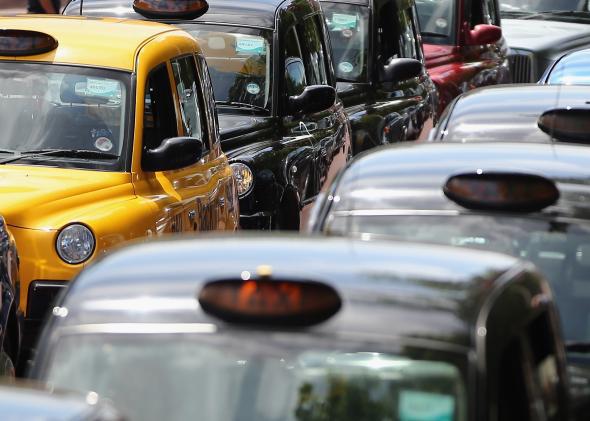Uber is facing its stiffest challenge yet in Germany after a court in Frankfurt ruled that Uber was competing unfairly with local taxis and banned its service until a hearing later this year. Should Uber continue operating in Germany (which it said it intends to do), the company could face fines of up to 250,000 euros (or $330,000), and local employees risk going to jail for up to six months.
Europe in general has not taken kindly to Uber. Back in June, traffic snarled major cities across the continent as thousands of taxi drivers protested the service. Uber is also banned in Brussels, where it faces a fine of 10,000 euros each time it gives fares to drivers without a taxi license. Paris, in its own attempt to stymie the company, decided late last year to make all car services except for licensed taxis wait “at least 15 minutes” between booking a ride and picking up a passenger.
The Frankfurt court reasoned that Uber posed unfair competition to the local taxi industry because some of its drivers did not have appropriate licensing and insurance. “Our main concern is that, while competition is healthy, everyone has to be playing by the same rules,” Arne Hasse, a spokesman for the Frankfurt state court, told the New York Times. The ban applies only to UberPop, the peer-to-peer segment of Uber’s service in Germany that connects drivers with riders. UberBlack, a limo-style service, will not be affected.
What Hasse says may be true, but it also sounds a lot like the reasons regulators love to give to protect establishment industries and ward off threatening competition. A flat-out ban on Uber suggests an interest in keeping the newcomers out rather than working with them to meet local standards. And between the decision in Germany and constant bickering with rival service Lyft closer to home, Uber’s newest hire David Plouffe is sure to have his hands full.
